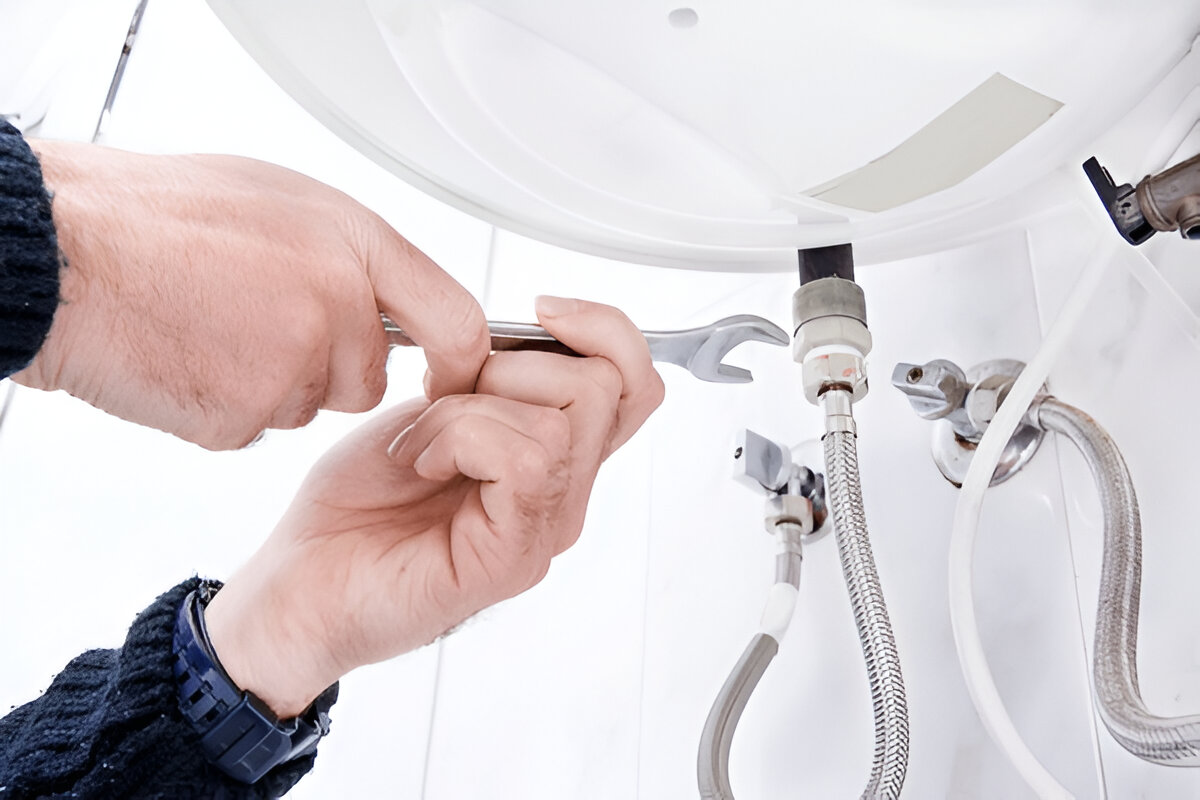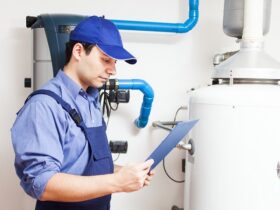There are not many things more annoying than finding out your kitchen sink is not producing hot water or entering a cold shower. Whether it is a sudden absence of hot water, fluctuating temps, or odd noises coming from your water heater, hot water problems can cause disruptions to everyday activities. Thankfully, there are easy solutions for a lot of common hot water issues that you may attempt before contacting a specialist. The most common hot water problems, their potential causes, and easy fixes to get your house warm again will all be covered in this article.
Common Hot Water Problems and Their Causes
Understanding why your hot water isn’t working properly is the first step toward fixing it. Here are some of the most common issues homeowners face:
No Hot Water at All
If your faucets and shower aren’t producing any hot water, the problem could be due to a tripped circuit breaker (for electric heaters), a faulty pilot light (for gas heaters), or a broken heating element.
Inconsistent or Fluctuating Water Temperature
If your water alternates between scalding hot and freezing cold, the issue might be a malfunctioning thermostat, a faulty mixing valve, or sediment buildup in the tank.
Water Takes Too Long to Heat Up
Slow-heating water often indicates a problem with the heating elements (in electric heaters), a too-small water heater for household demand, or excessive sediment reducing efficiency.
Strange Noises from the Water Heater
Rumbling, popping, or banging sounds usually mean sediment has accumulated at the bottom of the tank, causing overheating and noise as water bubbles through the debris.
Discolored or Smelly Hot Water
Rusty or metallic-tasting water suggests internal tank corrosion, while a rotten egg smell typically points to bacteria growth in the tank, often due to a reaction with the anode rod.
Quick Fixes for Hot Water Problems
Before calling a plumber, try these troubleshooting steps to resolve common hot water issues.
Check the Power Source (Electric Water Heaters)
If your electric water heater isn’t producing hot water, first check the circuit breaker. A tripped breaker can shut off power to the heater. Reset it if necessary. If the breaker trips repeatedly, there may be an electrical fault requiring professional attention.
Relight the Pilot Light (Gas Water Heaters)
For gas water heaters, a lack of hot water could mean the pilot light has gone out. Follow the manufacturer’s instructions to safely relight it. If the flame won’t stay lit, the thermocouple may need replacement.
Adjust the Thermostat
If water is too hot or not hot enough, the thermostat may be set incorrectly. Most water heaters have a dial set between 120°F and 140°F. Adjust it slightly and wait a few hours to see if the temperature stabilizes.
Flush the Water Heater to Remove Sediment
Sediment buildup reduces heating efficiency and can cause strange noises. To flush the tank:
- Turn off the power (or gas) and water supply.
- Connect a hose to the drain valve and empty the tank into a floor drain or bucket.
- Open the pressure relief valve to help water flow out.
- Once the tank is empty, briefly turn the water back on to flush out remaining sediment.
- Close the drain valve, refill the tank, and restore power.
Test the Heating Elements (Electric Heaters)
If one heating element fails, you may get lukewarm water. Use a multimeter to test for continuity. If an element is faulty, replace it following the manufacturer’s guidelines.
Inspect the Anode Rod
A corroded or depleted anode rod can lead to rust-colored water and bacterial growth. Drain a few gallons from the tank, remove the anode rod, and inspect it. If it’s heavily corroded, replace it with a new magnesium or aluminum rod.
When to Call a Professional
While many hot water issues can be resolved with DIY fixes, some problems require expert intervention. Call a licensed plumber if:
- The water heater is leaking.
- There’s no hot water despite checking power, pilot light, and thermostat.
- You hear loud banging or hissing noises.
- The water has a persistent foul odor or unusual color.
- The unit is over 10 years old and frequently malfunctions.
Preventative Maintenance for Long-Term Hot Water Efficiency
To avoid future hot water problems, follow these maintenance tips:
Annual Water Heater Flushing
Flushing the tank once a year prevents sediment buildup, improves efficiency, and extends the heater’s lifespan.
Test the Pressure Relief Valve
Lift the valve’s lever to ensure water flows out and stops when released. If it doesn’t, the valve may need replacement to prevent dangerous pressure buildup.
Insulate Older Water Heaters
Wrapping an insulation blanket around an older tank reduces heat loss and lowers energy bills.
Consider Upgrading to a Tankless System
If your household frequently runs out of hot water, a tankless water heater provides on-demand heating and greater energy efficiency.
Conclusion
Hot water issues can range from minor annoyances to major inconveniences, but many problems have simple solutions. By checking the power source, relighting the pilot light, adjusting the thermostat, or flushing sediment, you can often restore hot water without professional help. However, if problems persist or you notice leaks, strange noises, or discolored water, it’s best to call a plumber. Regular maintenance, such as annual flushing and inspecting the anode rod, can prevent future issues and keep your water heater running efficiently for years. With these quick fixes and preventative steps, you’ll ensure a steady supply of hot water for all your household needs.











Leave a Review